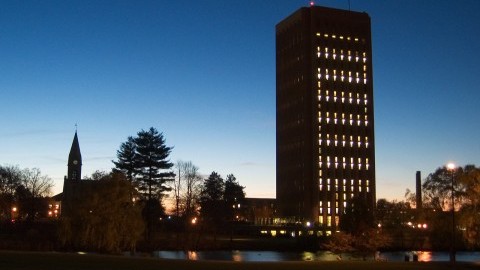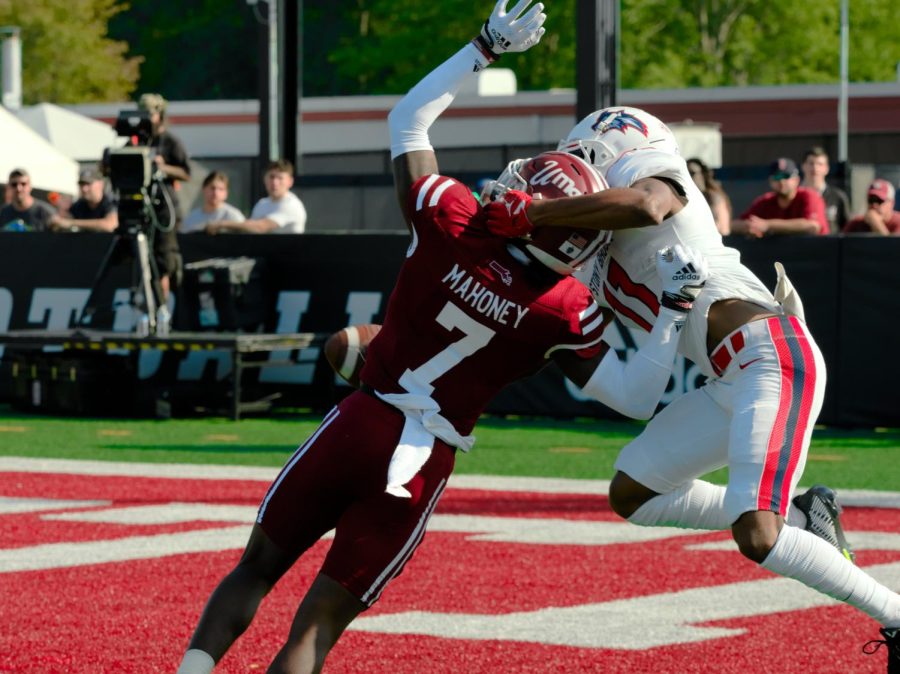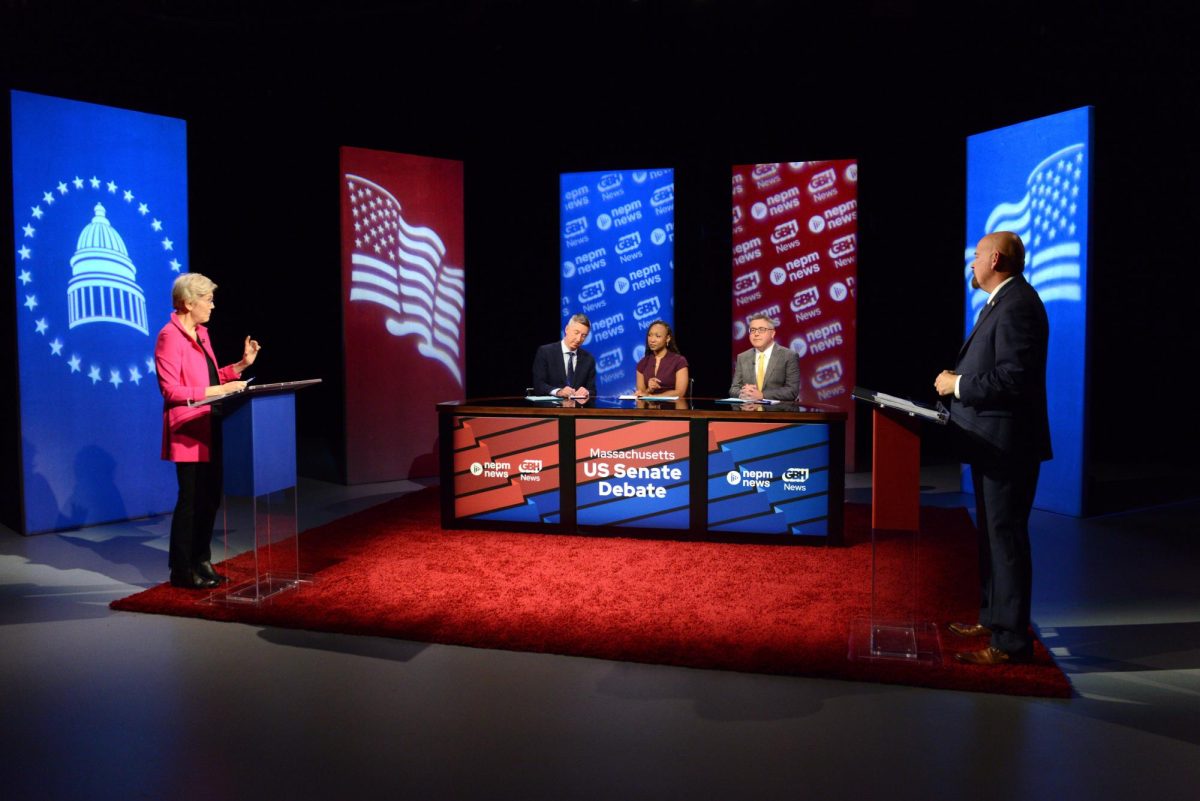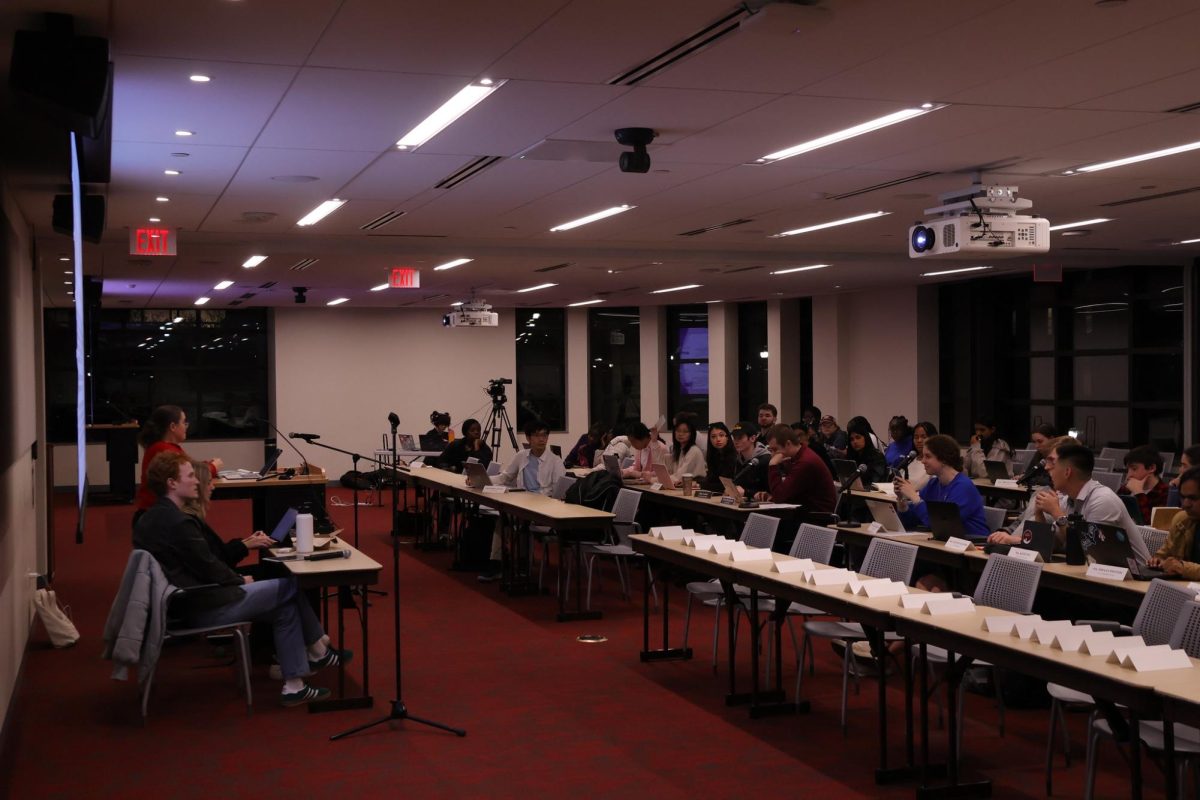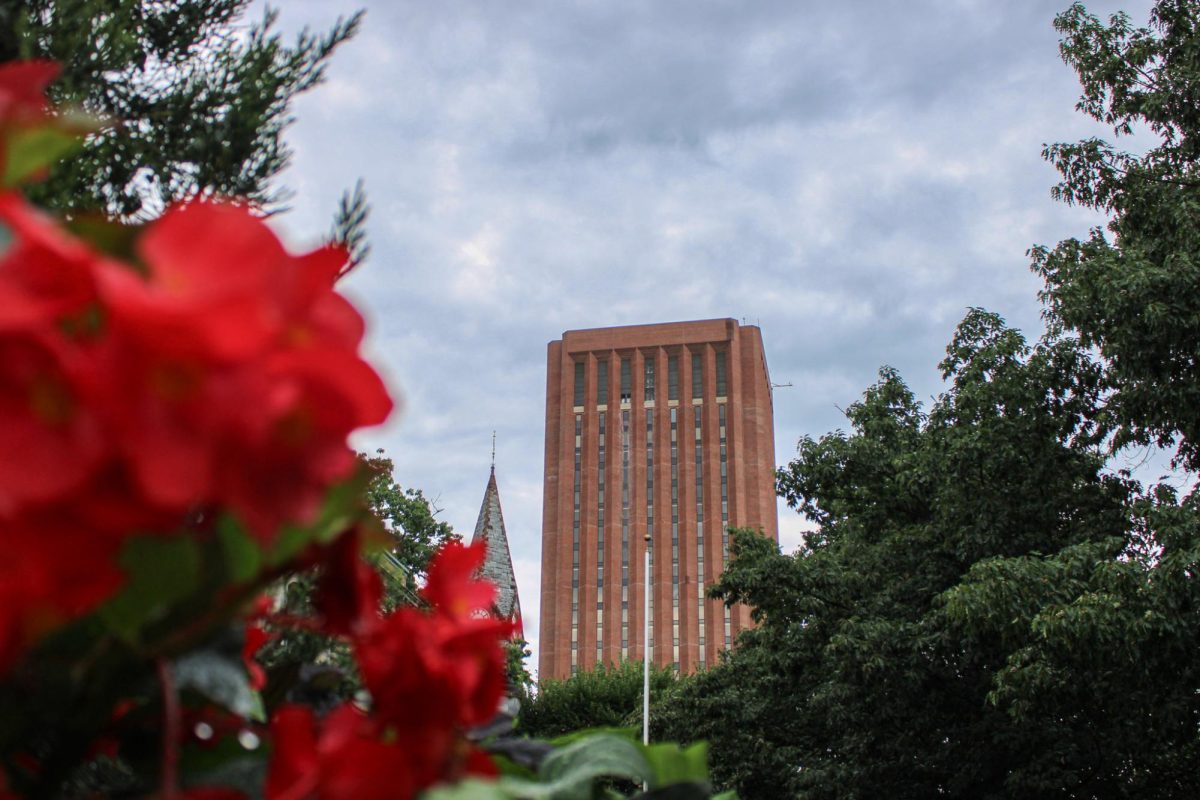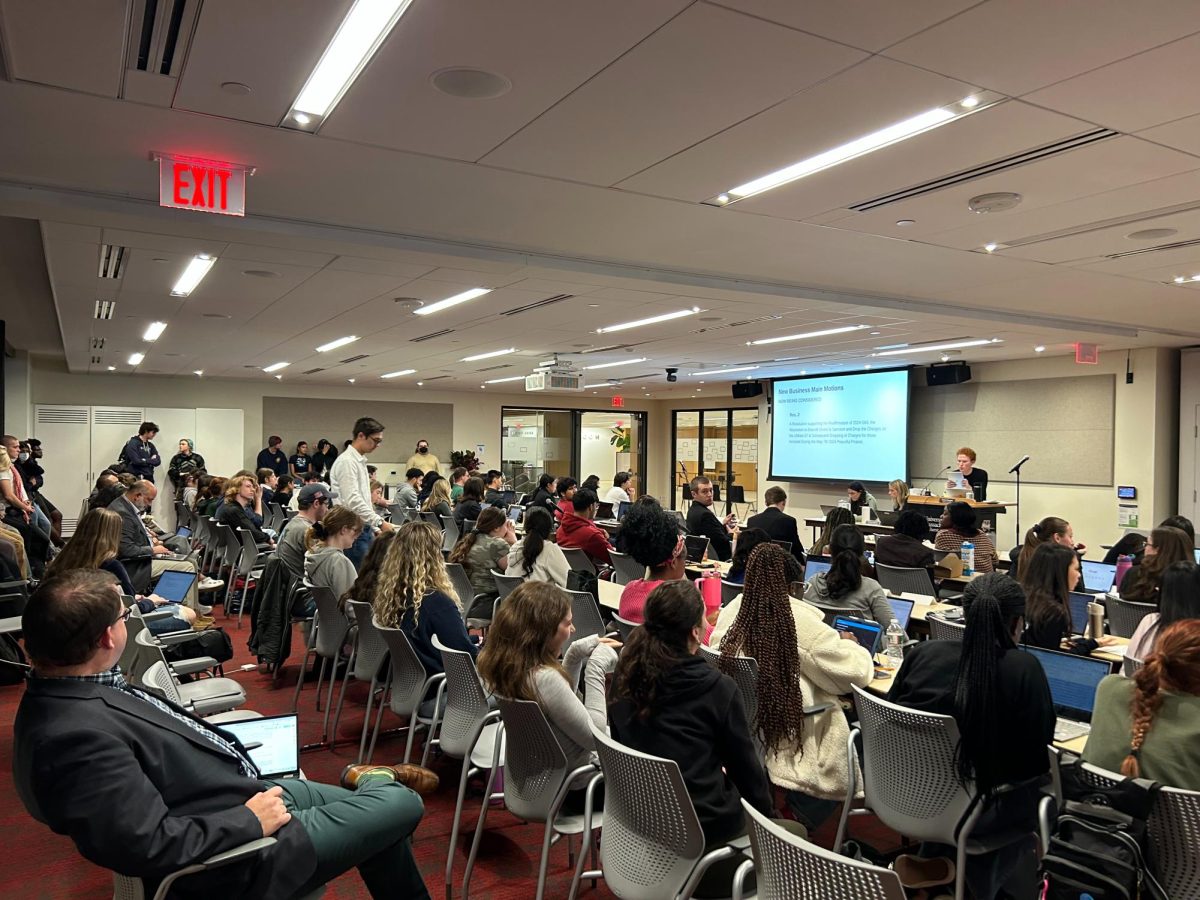A panel of community members joined together for “Perspectives on COVID-19 and Anti-Asian Bias and Xenophobia” on Wednesday afternoon, an academic discussion on the “rise in harassment, bullying, verbal assaults, and violence directed at Asian Americans and those within the Asian diaspora” during the coronavirus pandemic.
The discussion, organized by the Office of Diversity and Inclusion at the University of Massachusetts, was divided into two sections: a panel consisting of faculty members and a panel consisting of students, staff members and community members.
The first of six faculty discussions, titled “The Larger Context of Anti-Asian Racism”, was hosted by C.N. Le, a senior lecturer II in sociology and director of the Asian and Asian American studies program at UMass. Le gave an outline of the so-called “yellow peril” in which Asians were seen as “culturally unassimilable” and as “undeserving outsider[s].” Le cited President Donald Trump’s rhetoric of the “China virus” or the “Kung Flu” as stereotypes that drive “yellow peril.”
Following Le’s discussion was “U.S. Empire-building and Anti-Asian Racism: A Historical Perspective”, hosted by Richard T. Chu, a Five College associate professor of history. Chu argued that the United States’ desire to become an empire has caused persistent white supremacy. Chu said that “this white supremacist attitude is what stoked anti-Asian racism for the past 150 years.”
“Coupled with the rise of China as a global power and posing a threat to U.S. hegemonic rule in the world, [it] is what feeds the anti-Chinese xenophobia that we see today,” Chu said.
The next discussion, “How Would an Inclusive Community Talk about China”, was hosted by Sigrid Schmalzer, professor of Chinese history and vice president of the Massachusetts Society of Professors. Schmalzer applied two real-world examples of academia failing to provide an inclusive community for Chinese students, along with University of California Berkeley’s Health Center communication report, which had found that a common reaction to COVID-19 was xenophobia.
Schmalzer said that the center “normal[ized] xenophobia as a ‘common reaction’ and the apparent privileging of the ‘guilt’ that non-Asian people might feel about their own xenophobic reactions, while ignoring the actual experiences of xenophobia by Asian people.”
Schmalzer argued that “a truly inclusive community would talk about China as home, because it is home to many of us […] A truly inclusive institution would talk about China in ways that don’t assume the audience is non-Chinese.”
The fourth discussion, “Recuperating Multiracial Labor Solidarity as a Meaningful APA Politics: Lessons from the Filipino ‘Essential’ Workers of the Agricultural Workers Organizing Committee”, was hosted by Cedric de Leon, professor of sociology and director of the Labor Center. Leon analogized the work of Filipino and Mexican workers to the “relationship between APA victims of COVID racism and Black victims of police violence.”
Another discussion, “Anti-Black Racism and Anti-Asian Racism: Bridging Divides, Renewing Solidarities”, hosted by Sangeeta Kamat, a professor of comparative and international education. She described the interactions between Anti-Asian racism and Anti-Black racism.
Kamat said that “to bridge the divide and recognize the common ground upon which racism treads […] [we] must confront how racial ‘others’ – Brown and Black – are divided and pitted against one another.”
“[We] must work to revive old solidarities and build new ones in times of global supremacist politics,” she said.
The final discussion of the first panel was called “Creative Responses to Anti-Asian Racism during the COVID-19 Pandemic,” and was hosted by Michael Sakamoto, interim director of programming and director of Asian/Asian American Arts and Culture at the Fine Arts Center.
He identified two major Asian representatives, Viet Thanh Nguyen and Kristina Wong. Nguyen is a novelist, scholar and English professor at the University of Southern California, and a National Book Award Finalist and Pulitzer Prize Winner. Wong is a comedian and elected representative in Los Angeles, Calif. Sakamoto described how Nguyen and Wong are “risk averse, upwardly-mobile and politically mainstream status” and “put themselves on the line.”
Wong had said in her show, “Sweatshop Overload” that “it doesn’t matter if I’m a third generation Chinese American. It doesn’t matter that this virus was caused by a bat and doesn’t have a nationality.”
The second panel consisted of six speakers who detailed their personal experiences of Anti-Asian bias during COVID-19: Hwei-Ling Greeney, founder and executive director of Amherst Community Connections; Jay Wong, program director of the Asian American Commission of the Commonwealth (AAC); Brooke Kamalani Yuen, Western MA coordinator of AAC; Sonia Lindop, project director of Auxiliary Enterprises Career Ladder Program; Dora Tseng, a graduate student in the College of Education and a consumer manager for Disability Services; Lian Guo, a Ph.D. candidate in Organismic and Evolutionary Biology; and Lily Tang, a senior studying political science and Asian and Asian American studies, and director of Outreach for the Commonwealth Seminar.
The event was co-sponsored by the Asian and Asian American Studies Certificate Program; the Department of History; the Labor Center; the Department of Women, Gender, and Sexuality Studies; the Asian and American Arts and Culture Program; the Fine Arts Center; the College of Education; the Massachusetts Society of Professors; the UMass Center for Multicultural Advancement and Student Success; and the Department of Sociology.
Alex Genovese can be reached at [email protected]. Follow him on Twitter @alex_genovese1.

